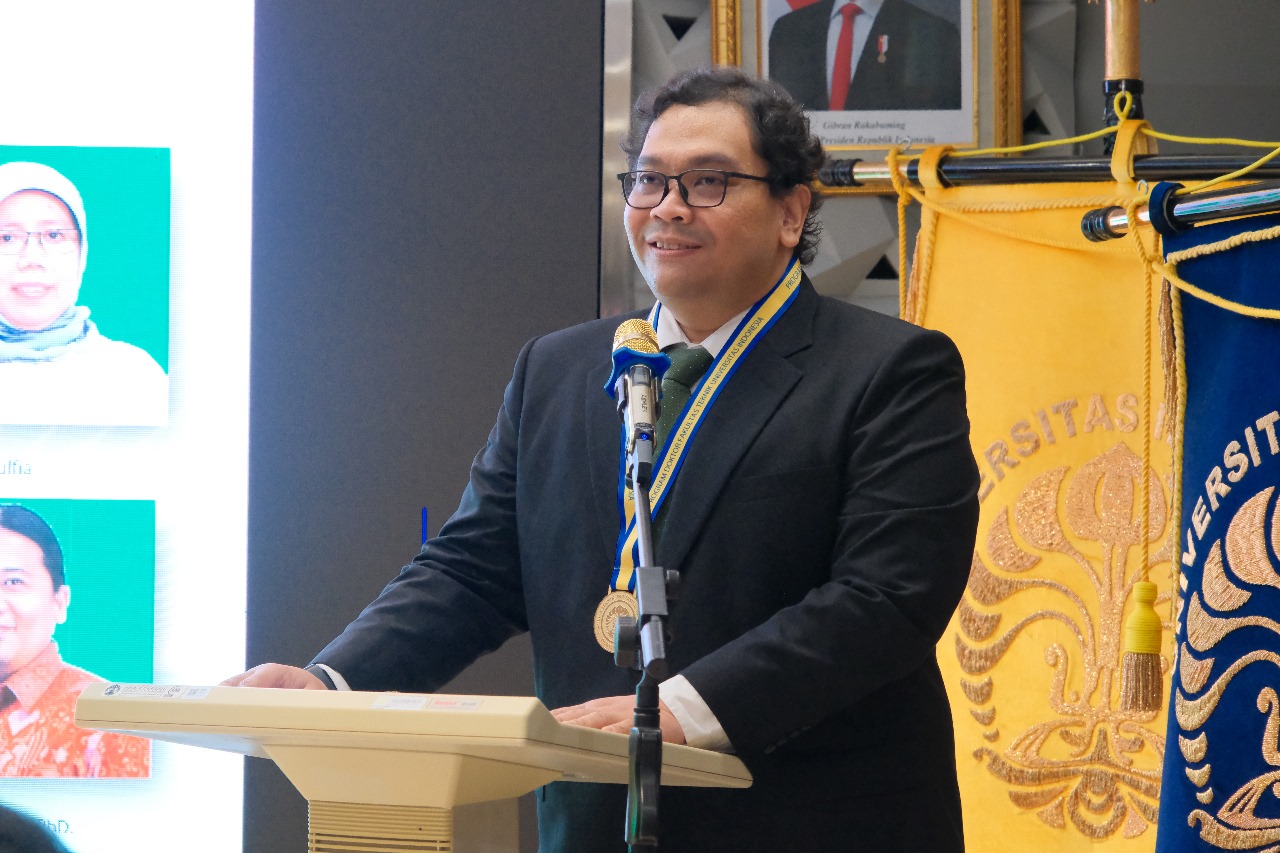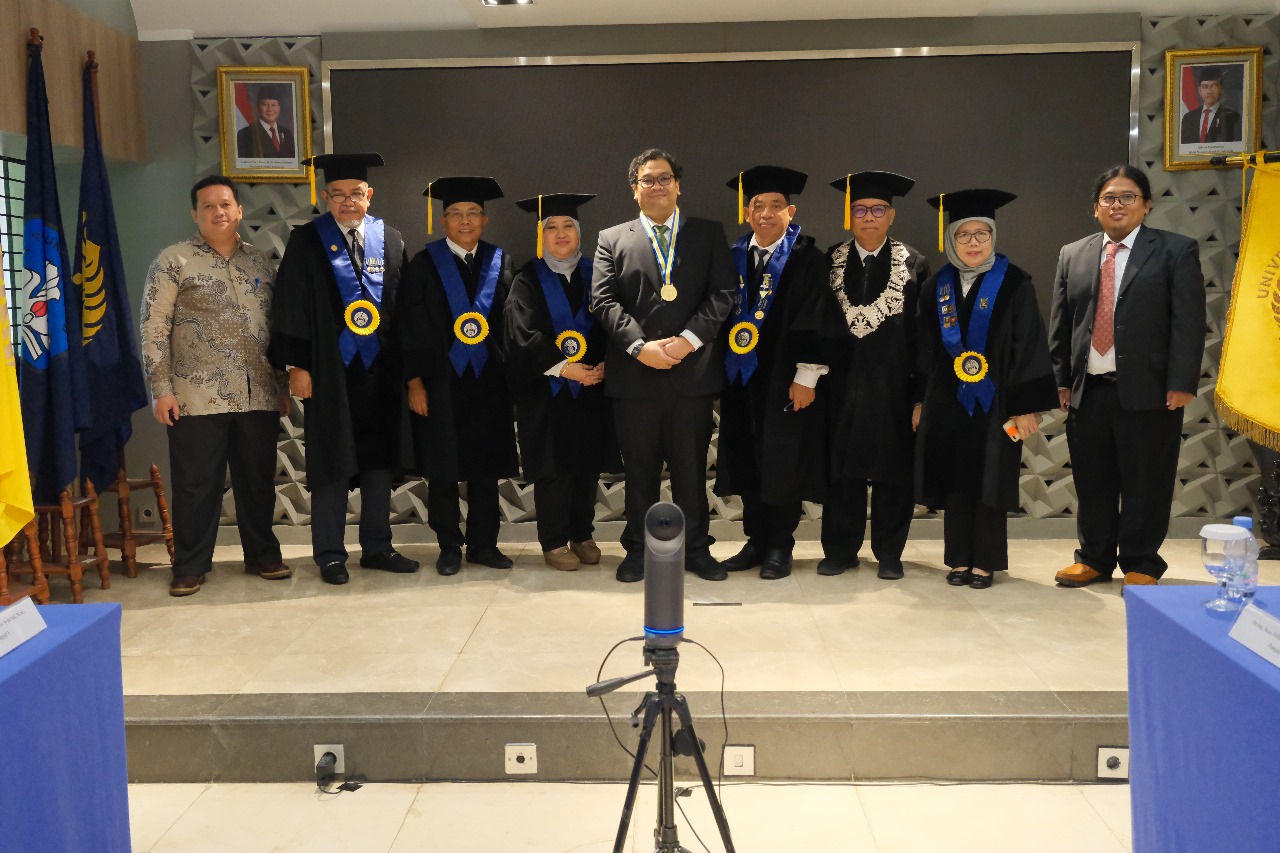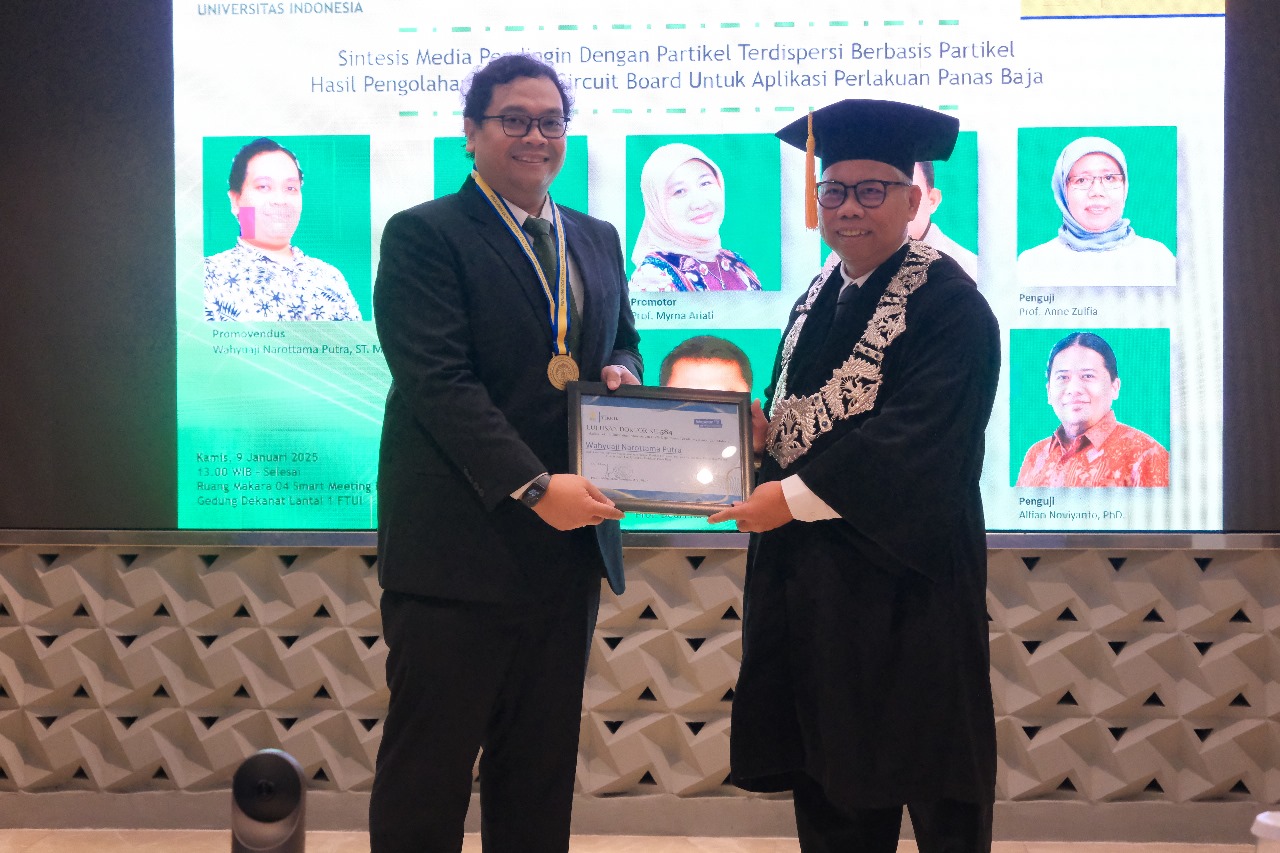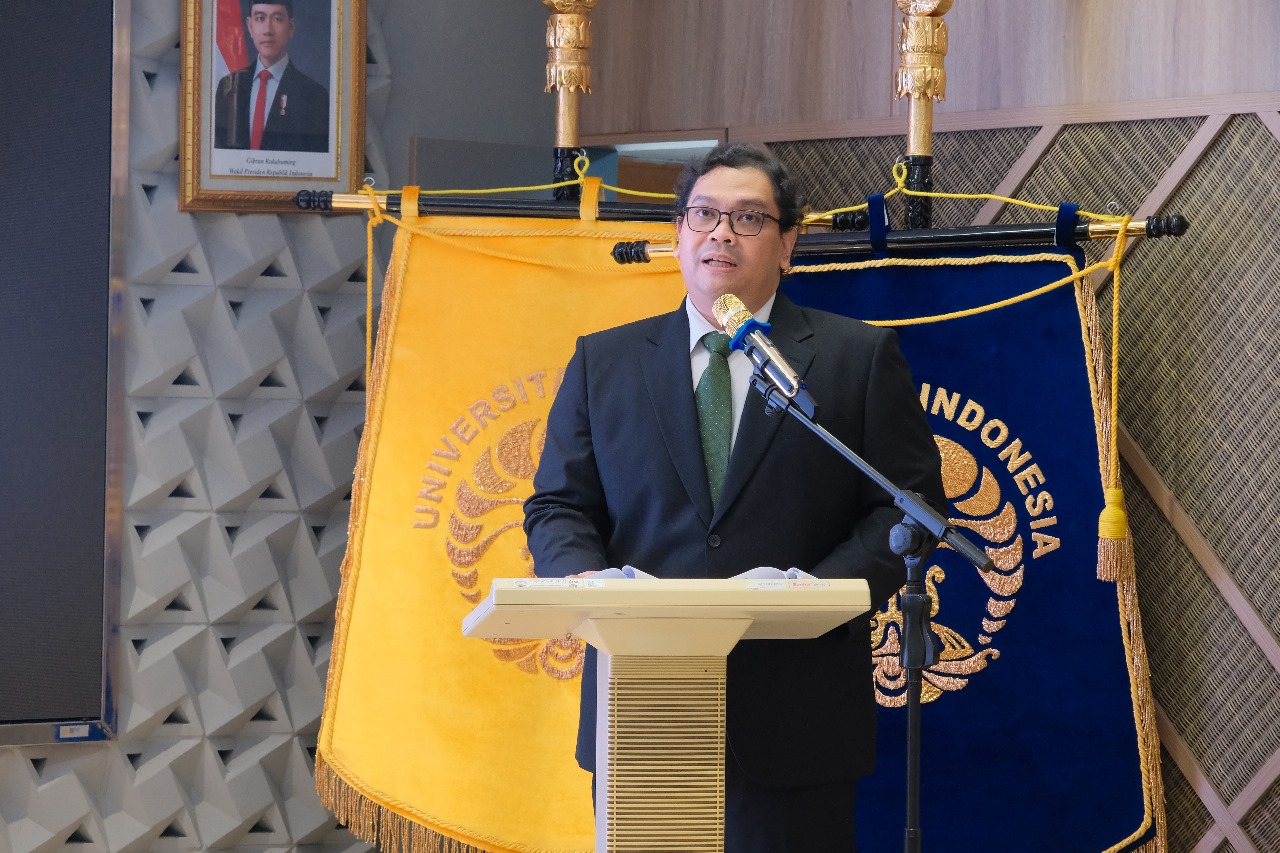FTUI Researcher Develops Eco-Friendly Cooling Media from Electronic Waste Materials
Wahyuaji Narottama Putra, a doctoral student in the Metallurgical and Materials Engineering Program at FTUI, has combined the industry’s need for advanced cooling media with a solution to electronic waste. His research, presented in his dissertation titled “Synthesis of Cooling Media with Dispersed Particles Based on Processed Printed Circuit Board Waste for Steel Heat Treatment Applications”, addresses challenges in the metallurgical industry while solving the growing electronic waste problem. The Doctoral Promotion Session occurred on Thursday, January 9, 2025, at the Makara 04 Smart Meeting Room, FTUI Dean’s Building.
Steel remains vital across various modern industries, including automotive, construction, and manufacturing. Its properties can be modified through heat treatment, making it highly relevant despite the advent of new materials. One critical stage in steel heat treatment is the quenching process, which requires an efficient cooling medium to achieve optimal performance.
However, conventional cooling media, such as water, oil, or brine solutions, have efficiency and environmental impact limitations. Meanwhile, electronic waste, mainly Printed Circuit Board (PCB), continues growing into a global issue. Only about 17% of the world’s electronic waste is recycled, and the remainder pollutes the environment.
Through an innovative approach, Wahyuaji utilized PCB waste to create a more effective cooling than conventional options. “The research began by processing PCB waste through several key stages: leaching, pyrolysis, and milling. In the leaching stage, PCB waste is immersed in an HCl solution to remove the epoxy attached to the fibreglass, making particle grinding easier in the subsequent stage. Pyrolysis was then conducted at 500°C to transform the tough epoxy into a more brittle material, allowing more effective particle reduction,” explained Wahyuaji.
In the final stage, the research employed a planetary ball mill method at 500 rpm for 20 hours, reducing the PCB particle size to an average of 240.7 nanometers. The particles were then mixed into a water-based cooling medium and surfactants such as Sodium Dodecylbenzene Sulfonate (SDBS) to enhance dispersion stability. This cooling medium was tested on S45C carbon steel and AISI 4140 alloy steel during the quenching process to measure cooling speed and steel hardness improvements.
The research yielded significant findings. Adding 0.5% PCB particles and 3% SDBS surfactant increased the thermal conductivity of the cooling medium by 17.5% and boosted cooling speed by 16.93%. Steel hardness also improved substantially, with S45C steel showing a 32.5% increase and AISI 4140 steel experiencing a 30.5% rise. Wahyuaji also found that the PCB particle-based cooling medium achieved a Grossman H-value of 3.52, higher than that of water (1.99) or brine solution (2.36). Additionally, the medium was more eco-friendly as it did not cause corrosion like brine and offered a sustainable solution for electronic waste.
Wahyuaji concluded that PCB waste has significant potential to be processed into stable and efficient nanoparticles for cooling media in the metallurgical industry. “TAddingthese particles allows better control over cooling speed, ultimately enhancing steel hardness. For future research, I recommend optimizing the milling process to produce even smaller particles and conducting numerical simulations to predict heat distribution more accurately,” he said.
Acting Dean of FTUI, Prof. Ir. Mahmud Sudibandriyo, M.Sc., Ph.D., highly praised this research, highlighting its academic relevance and practical impact on the industry and environment. “This study paves the way for developing more eco-friendly and sustainable technologies,” he stated.
With this groundbreaking research, Wahyuaji Narottama Putra earned his doctorate with Summa Cum Laude honours and a perfect GPA of 4.0. Dr. Wahyuaji is the 76th doctoral graduate from the Department of Metallurgical and Materials Engineering and the 584th from the Faculty of Engineering, Universitas Indonesia. The Doctoral Promotion Session was chaired by Prof. Ir. Mahmud Sudibandriyo, M.Sc., Ph.D., with Prof. Dr. Ir. Myrna Ariati Mochtar, M.S. as the Promoter and Prof. Dr.-Ing. Ir. Bambang Suharno as the Co-Promoter. The examiners included Prof. Dr. Ir. Anne Zulfia Syahrial, M.Sc., Prof. Dr. Ir. Donanta Dhaneswara, M.Si., IPM., Prof. Dr. Ir. Dedi Priadi, DEA., Dr.-Ing. Reza Miftahul Ulum, S.T., M.T., and Alfian Noviyanto, S.T.P., M.T., Ph.D.
Public Communications Office
Faculty of Engineering, Universitas Indonesia




